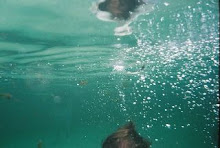"Our technologies have become more powerful than our theories. We are capable of doing things that we do not understand. We can perform gene splicing without fully understanding how genes interact. We can make pharmaceutics without being able to explain effects and predict side effects. We can create new sub-atomic particles without knowing precisely whether they actually exist outside the laboratory. We can store, and retrieve, endless bits of information without knowing what they mean. ..."
"Because complexity results from the interaction between components of a system, complexity is manifested at the level of the system itself."
"The simple and the complex often mask each other."
"Characteristics of complex systems:
i. complex systems consist of a large # of elements. When the number is relatively small the behavior of elements can often be given a formal description in conventional terms. However, when the number becomes sufficiently large, conventional means (e.g. a system of differential equations) not only become impractical, they also cease to assist in any understanding of the system.
ii. A large number of elements are necessary, but not sufficient. The number of grains of sand on a beach do not interest us as a complex system. In order to constitute a complex system, the elements have to interact and this interaction must be dynamic. A complex system changes with time. The interactions do not have to be physical; they can also be thought of as the transference of information.
iii. The interaction is fairly rich, i.e., any element in the system influences and is influenced by quite a few other ones. The behavior of the system, however, is not determined by the exact amount of interactions associated with specific elements. If there are enough elements in the system (of which some are redundant), a number of sparsely connected elements can perform the same function as that of one richly connected element.
iv. The interactions themselves have a number of important characteristics. Firstly, the interactions are non-linear. A large system of linear elements can usually be collapsed into an equivalent system that is very much smaller. Non-linearity also guarantees that small causes can have large results, and vice versa. It is a precondition for complexity.
v. The interactions usually have a fairly short range. i.e. information is received primarily from immediate neighbors. Long-range interaction is not impossible, but (im)practical. Constraints usually force this consideration. This does not preclude wide-ranging influence since the interaction is rich, the route from one element to any other can usually be covered in a few steps. As a result, the influenc gets modulated along the way. It can be enhanced, suppressed, or altered in a number of ways.
vi. There are loops in the interactions. The effect of any activity can feed back onto itself. Sometimes directly, sometimes after a number of intervening stages. This feedback can be positive (enhancing, stimulating) or negative (detracting, inhibiting). Both kinds are necessary. The technical term for this aspect of a complex system is
recurrency.
vii. Complex systems are usually open systems, i.e. they interact with their environment. As a matter of fact, it is often difficult to define the border of a complex system. Instead of being a characteristic of the system itself, the scope of the system is usually determined by the purpose of the description of the system, and is thus often influenced by the position of the observer. This process is called framing. Closed systems are usually merely complicated.
viii. Complex systems operate under conditions far from equilibrium. There has to be a constant flow of energy to maintain the organization of the system and to ensure its survival. Equilibrium is another word for death.
ix. Complex systems have a history. Not only do they evolve through time, but their past is co-responsible for their present behavior. Any analysis of a complex system that ignores the dimension of time is incomplete, or at most a synchronic snapshot of a diachronic process.
x. Each element in the system is ignorant of the behavior of the system as a whole, it responds only to information that is available to it locally. This point is vitally important. If each element "knew" what was happening to the system as a whole, all of the complexity would have to be present in that element. This would either entail a physical impossibility in the sense that a single element does not have the necessary capacity, or constitute a metaphysical move in the sense that 'consciousness' of the whole is contained in one particular unit. Complexity is the result of a rich interaction of simple elements that only respond to the limited information each of them are presented with. When we look at the behavior of a complex system as a whole, our focus shifts from the individual element in the system to the complex structure of the system. The complexity emerges as a result of the patterns of interaction between the elements." (p.5)
Ludwig Boltzman
3 laws that allow scientists to deal with use and transfer of energy in an accurate way without getting entangled in lower level complexities.
-dissipation of energy
-forgetting of initial conditions
-evolution toward disorder
"Entropy can be seen as a measure of the 'disorder' in a system. As a system transforms energy, less and less of it remains in a usable form, and the 'disorder' in a system increases."
"When dealing with complexity, there are no shortcuts without peril. The notion should nevertheless not be used absolutely. The complex systems we are interested in are never completely minimal; they contain a lot of spare capacity or redundancy. This is necessary for more than one reason: it provides robustness, space ofr development and the means for plasticity. ... To describe a complex system you have, in a certain sense, to repeat the system."



